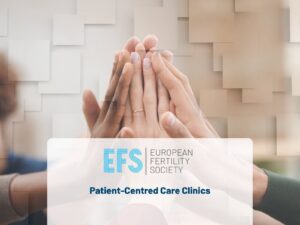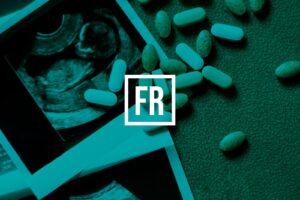Here we share some of our fertility experts’ answers.
Answer from:
Raúl Olivares, MD Gynaecologist, Medical Director & Owner Barcelona IVF
In my opinion, there’s nothing in particular that should be avoided before the embryo transfer. Of course, if you have been through an IVF cycle and your ovaries have been stimulated, plus you’ve gone through an egg collection, your ovaries could be bigger and more tender than usual. There could be a low risk of bleeding if you are too active, or you do an intense activity.
My advice is to get yourself in your best condition prior to (hopefully) pregnancy. Eat healthily, stay hydrated and don’t do things that can reduce chances of success (for example: smoking, excessively exercising or taking recreational drugs). Once you have started the stimulation stage of IVF until the embryo transfer, the recommendation is to avoid the risk of having complications such as bleeding, pain and bloating. In terms of increasing the efficiency of an embryo transfer, there is nothing special you can do.
Answer from:
Rami Wakim, MD FRCOG FACOG FICS Gynaecologist, Consultant in Reproductive Medicine Phoenix Hospital Group
One of the main things to avoid before the embryo transfer is stress. How best to avoid stress? Explore alternative therapies – meditation, hypnotherapy, acupuncture and other relaxation techniques. Find the best stress reducing activity for you.
Please also avoid having too much abdominal distension. Keep your diet light and no heavy meals. Eat small meals regularly.
Answer from:
Alpesh Doshi Consultant Embryologist and Co-founder at IVF London
Usually there’s no particular restriction on food. Of course, we always tell our patients that even during conception try and follow guidelines such as there are some amazing NHS websites about what you can eat and what you can’t eat in pregnancy, so try and adapt that diet even during conception. In terms of Do’s and Don’ts, we advise our patients not to have any hot baths after the embryo transfer. Do not wear any strong perfume or deodorant because embryos are very sensitive to such strong smells. The most important parameters are that after the egg collection, the patient needs to keep on taking their medications regularly, daily, on time but apart from that, there is absolutely no restriction whether that’s from a food perspective or a lifestyle perspective. We do tell our patients do not engage with any heavy exercise – certainly post egg collection. Some gentle exercises are absolutely fine. On the day of embryo transfer, we say please take it easy. Again, no running the marathon! A nice walk, a gentle stroll and that’s absolutely fine.
Answer from:
Harry Karpouzis, MD, MRCOG, DIUE Gynaecologist, Founder & Scientific Director Pelargos IVF Medical Group
Before embryo transfer, there are two things women should take care of. First of all, it is very important to have a full bladder. Again, it is very important that the bladder is not completely full. What we usually advise our patients before the embryo transfer is to empty the bladder in the morning and then drink about 4 glasses of water. If the bladder is very full, this sometimes can cause problems during the embryo transfer and passing of the catheter.
Secondly, it is important to avoid sexual intercourse in the morning and the night before as orgasm can increase the contractions of the uterus. Regarding vaginal medication, at our unit, we do not have a problem with that, a patient can use it in the morning.
Generally, it is important to make sure that the patient is not stressed. Have a good night’s sleep the night before. Avoid wearing perfume, especially alcohol-based perfume, because this can cause problems to the embryo during the procedure.
Answer from:
Marcel Štelcl, MUDr, PhD Gynaecologist, Chief Physician ReproGenesis
In my opinion, it’s important to avoid stress prior to embryo transfer. Many patients are stressed because they expect some pain, etc. But in the majority of cases, it is not painful, and it is like a gynaecological examination. We sometimes need a full bladder for better performance of embryo transfer so I recommend not going to the toilet before embryo transfer.
Answer from:
Ali Enver Kurt, MD Gynaecologist, Specialist in Obstetrics & Gynaecology Vita Altera IVF Centre
As far as we know, before the embryo transfer, there is only one contraindication and that’s sexual intercourse, especially in the previous 24 to 48 hours. It is not allowed because in the semen there are some materials that can cause contractions in the uterus so we don’t want that. So, in the 24 to 48 hours prior to embryo transfer, you must avoid sexual intercourse. The second and most important thing is to use the medications correctly.This is essential.
Regarding alcohol – one glass of wine won’t hurt but don’t finish the bottle! Try to relax and find stress-reducing activities that work for you. Avoid excessive exercise.
Answer from:
Arianna D’Angelo, MD Gynaecologist, Consultant
In my view, there is no right and wrong answer to this question. People have to feel comfortable and have no regrets in the future. There is nothing that is actually extremely dangerous although you should avoid extreme exercise. It very much depends on whether this is a fresh embryo transfer or a frozen one. With the fresh embryo transfer, the ovaries are still swollen. Remember, you’ve just been through a procedure to retrieve your eggs. Therefore, it’s best to avoid any strenuous exercise or anything that can put your ovaries at risk of rupture or torsion. Enjoy a gentle lifestyle during this period of time.
With the frozen transfer, there is not much to avoid. The ovaries should be perfectly fine, and there are no major risks. Because we do tend to do the embryo transfer with a full bladder, avoid going to the toilet just before coming for an embryo transfer. But other than that, there are no right and wrong things, it’s what you feel comfortable with.
Answer from:
Carleen Heath, Clinical Embryologist, Dip. RC Path Embryologist, Laboratory Manager GENNET City Fertility
On the day of embryo transfer, avoid wearing strong body creams and perfumes as the scent of these can have negative effects on embryos within the lab. Also avoid skipping meals on the day. You may be required to drink an amount of water to fill your bladder for the procedure, so ensure you have something to eat as well.








